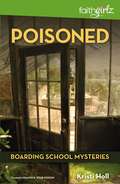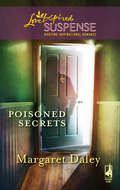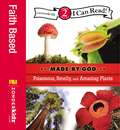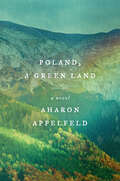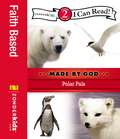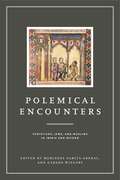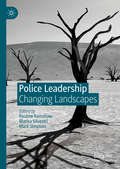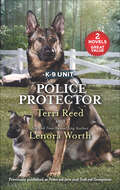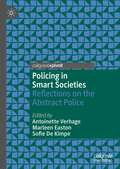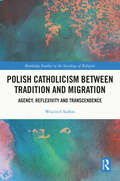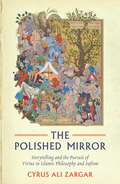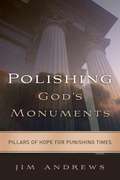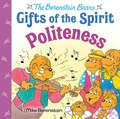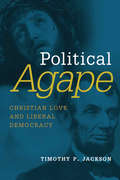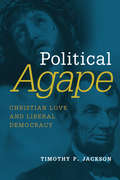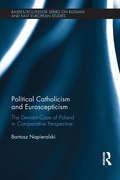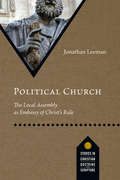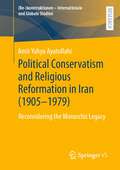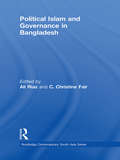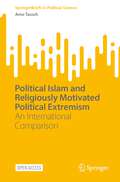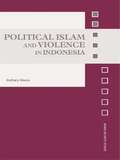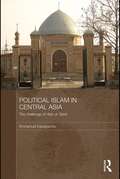- Table View
- List View
Poison: A Novel
by Jordyn RedwoodFive years ago, Keelyn Samuels's armed, mentally ill stepfather took her family hostage in their house in rural Colorado. She and her half-sister Raven made it out alive, but others did not. Authorities blamed the father's frequent hallucinations about a being named Lucent, but in the end, even the best of the FBI's hostage negotiators failed to overcome the man's delusions and end the standoff peacefully.SWAT team member Lee Watson was there that day. He watched it all unfold and was able to pull Keelyn and Raven from the grip of their demon-possessed father. Though partially successful, his team had still failed, and the outcome of that day--and that tortured family--has continued to plague Lee ever since. Though unusual for SWAT to reconnect with survivors, Lee bumped into Keelyn two years after the crisis, and they both found some peace in their budding relationship. But peace is hard to maintain when the memory returns . . . in the flesh.Lucent is back, and he's no hallucination. In fact, he is a very real person with dangerous motives. He has kidnapped Raven's daughter, and--Keelyn worries--maybe has hurt Raven as well. Though she is estranged from her sister, Keelyn feels the immediate need to find Raven and save what family she has left. But when others who were involved in that fateful day start dying, some by mysterious circumstances, Keelyn wonders if she and Lee can emerge unscathed a second time.The highly anticipated second installment of the Bloodline Trilogy explores the boundaries of faith and family and what happens when both are put to the test.
Poisoned
by Kristi HollWhen a group of Jeri McKane’s friends help Abby present a birthday dinner for her home-ec project, the party ends up in the trashcan … literally. Is it just an unfortunate event, or have the friends been intentionally poisoned? Jeri’s instinct says something isn’t right, and the girls follow a trail that leads to some not-so-sweet evidence. Tween girls can wonder why God doesn’t step in when meanness and injustice happens. This story helps them see how he often uses ordinary people to help uncover the truth!
Poisoned Secrets
by Margaret DaleyMaggie Ridgeway has spent years searching for her birth mother. And now, thanks to an anonymous tip, she's finally found her. Taking the apartment across the hall from her mother's family, Maggie is determined not to leave until she gets some questions answered. Who is her father? Why did her parents abandon her? And what item in her new apartment is provoking multiple burglaries? After an interrupted break-in leaves Maggie unconscious, the building's owner, Kane McDowell, promises to protect her. But then he learns who she really is. When the past is unveiled, the shocking disclosures could tear Maggie and Kane apart.
Poisonous, Smelly, and Amazing Plants: Level 2 (I Can Read! #Level 2)
by Various AuthorsDid you know—The Venus Flytrap plant eats bugs? That the redwood is the tallest tree in the world? God's awesome world is filled with unusual plants!
Poland, a Green Land: A Novel
by Aharon AppelfeldA Tel Aviv shopkeeper visits his parents&’ Polish birthplace in an attempt to come to terms with their complex legacy—and is completely unprepared for what he finds there.Yaakov Fine&’s practical wife and daughters are baffled by his decision to leave his flourishing dress shop for a ten-day trip to his family&’s ancestral village in Poland. Struggling to emerge from a midlife depression, Yaakov is drawn to Szydowce, intrigued by the stories he'd heard as a child from his parents and their friends, who would wax nostalgic about their pastoral, verdant hometown in the decades before 1939. The horrific years that followed were relegated to the nightmares that shattered sleep and were not discussed during waking hours.When he arrives in Krakow, Yaakov enjoys the charming sidewalk cafes and relaxed European atmosphere, so different from the hurly burly of Tel Aviv. And his landlady in Szydowce—beautiful, sensual Magda, with a tragic past of her own—enchants him with her recollections of his family. But when Yaakov attempts to purchase from the townspeople the desecrated tombstones that had been stolen from Szydowce&’s plowed-under Jewish cemetery, a very different Poland emerges, one that shatters Yaakov&’s idyllic view of the town and its people, and casts into sharp relief the tragic reality of Jewish life in Poland—past, present, and future.In this novel of revelation and reconciliation, Aharon Appelfeld once again mines lived experience to create fiction of powerful, universal resonance.
Polar Pals: Level 2 (I Can Read! #Level 2)
by ZondervanThese exciting photos and facts show children the wonders of God’s creation. Includes simple text perfect for level two readers. Titles include: Rainforest Creatures; Under the Sea; Birds of the Air; Bugs, Bugs, Bugs; Freezing Friends; and Creatures Down Under. Rainforest Creatures features unusual yet familiar animals like the sloth and the tree kangaroo and facts about their habitat. Under the Sea will feature facts about sea creatures such as the giant squid, baseball fish, and the blue-ringed octopus. Birds of the Air will include facts about flying friends like the macaw, toucan, flamingo, and yellow-bellied sapsucker. Bugs, Bugs, Bugs will tell about stinkbugs, dung beetles, killer bees, and more. Creatures Down Under will tell about the platypus, kookaburra, kangaroo, and crocodile and coral. Freezing Friends will focus on Polar bears, seal, penguin, and walrus. Farm Animal Babies will focus on familiar farm animal babies, their special names, and characteristics. Forest Animal Babies will focus on fun forest animal babies like raccoons, mountain lions, and baby birds and their special characteristics. Jungle Animal Babies will focus on fun jungle animal babies like monkeys, panthers, and baby birds and their special characteristics.
Polemical Encounters: Christians, Jews, and Muslims in Iberia and Beyond (Iberian Encounter and Exchange, 475–1755 #2)
by Mercedes García-Arenal Gerard WiegersThis collection takes a new approach to understanding religious plurality in the Iberian Peninsula and its Mediterranean and northern European contexts. Focusing on polemics—works that attack or refute the beliefs of religious Others—this volume aims to challenge the problematic characterization of Iberian Jews, Muslims, and Christians as homogeneous groups.From the high Middle Ages to the end of the seventeenth century, Christian efforts to convert groups of Jews and Muslims, Muslim efforts to convert Christians and Jews, and the defensive efforts of these communities to keep their members within the faiths led to the production of numerous polemics. This volume brings together a wide variety of case studies that expose how the current historiographical focus on the three religious communities as allegedly homogeneous groups obscures the diversity within the Christian, Jewish, and Muslim communities as well as the growing ranks of skeptics and outright unbelievers. Featuring contributions from a range of academic disciplines, this paradigm-shifting book sheds new light on the cultural and intellectual dynamics of the conflicts that marked relations among these religious communities in the Iberian Peninsula and beyond.In addition to the editors, the contributors are Antoni Biosca i Bas, Thomas E. Burman, Mònica Colominas Aparicio, John Dagenais, Óscar de la Cruz, Borja Franco Llopis, Linda G. Jones, Daniel J. Lasker, Davide Scotto, Teresa Soto, Ryan Szpiech, Pieter Sjoerd van Koningsveld, and Carsten Wilke.
Polemical Encounters: Christians, Jews, and Muslims in Iberia and Beyond (Iberian Encounter and Exchange, 475–1755)
by Ryan Szpiech Linda G. Jones John Dagenais Gerard Wiegers Thomas E. Burman Antoni Biosca i Bas Mònica Colominas Aparicio Óscar de la Cruz Borja Franco Llopis Daniel J. Lasker Davide Scotto Pieter Sjoerd van Koningsveld Carsten WilkeThis collection takes a new approach to understanding religious plurality in the Iberian Peninsula and its Mediterranean and northern European contexts. Focusing on polemics—works that attack or refute the beliefs of religious Others—this volume aims to challenge the problematic characterization of Iberian Jews, Muslims, and Christians as homogeneous groups.From the high Middle Ages to the end of the seventeenth century, Christian efforts to convert groups of Jews and Muslims, Muslim efforts to convert Christians and Jews, and the defensive efforts of these communities to keep their members within the faiths led to the production of numerous polemics. This volume brings together a wide variety of case studies that expose how the current historiographical focus on the three religious communities as allegedly homogeneous groups obscures the diversity within the Christian, Jewish, and Muslim communities as well as the growing ranks of skeptics and outright unbelievers. Featuring contributions from a range of academic disciplines, this paradigm-shifting book sheds new light on the cultural and intellectual dynamics of the conflicts that marked relations among these religious communities in the Iberian Peninsula and beyond.In addition to the editors, the contributors are Antoni Biosca i Bas, Thomas E. Burman, Mònica Colominas Aparicio, John Dagenais, Óscar de la Cruz, Borja Franco Llopis, Linda G. Jones, Daniel J. Lasker, Davide Scotto, Teresa Soto, Ryan Szpiech, Pieter Sjoerd van Koningsveld, and Carsten Wilke.
Police Leadership: Changing Landscapes
by Marisa Silvestri Mark Simpson Pauline RamshawThis book draws upon a range of theoretical and empirical research to explore contemporary debates about police leadership. Focusing upon leadership styles, ethics, integrity and professionalism, workforce diversity, legitimacy and accountability, it reviews the changing context and nature of leadership over time and explores the gains, losses, tensions and challenges that different leadership models bring to policing. Leadership is present at various levels within the police service and this collection reflects upon appropriate leadership qualities and requirements for different roles and at different ranks. The book also considers the difference between leadership and management in an attempt to capture fuller debates within police leadership. Part one surmises the contextual backdrop to current thinking and the primary challenges facing leadership in the police service. Part two highlights the changing face of leadership through an exploration of the call for greater diversity within the ranks of police leadership, and the final section examines police leadership beyond England and Wales. Through this, Police Leadership explores how the challenges facing police leadership in England and Wales share similarities with those in Scotland, Northern Ireland, Greece, North America, and Australia in the face of the pressures of political and economic uncertainty.
Police Protector: Protect And Serve Truth And Consequences (K-9 Unit)
by Lenora Worth Terri ReedEnjoy two action-packed page-turners featuring K-9 crime-stoppers solving thrilling mysteries that will keep you on the edge of your seat!These lawmen solve the toughest cases with the help of their brave canine partners.Protect and ServeWhen rookie K-9 officer Shane West finds the lead police dog trainer murdered, he’s determined to find the killer. Then he discovers Gina Perry hiding nearby—a pretty junior trainer who had the motive, means and opportunity to kill her boss. Gina insists her troubled brother is the real murderer. And when Gina’s brother comes after her, Shane is assigned to protect her and uncover the truth.Truth and ConsequencesFormer army medic David Evans heads to Arizona to check up on a fallen comrade’s sister, but when he arrives in Desert Valley, David witnesses a drug run gone wrong. And when the police show up, the investigating officer is the woman he’s supposed to look after. K-9 officer Whitney Godwin insists she can take care of herself and her infant daughter. But the criminals want both David and Whitney permanently silenced…
Policing in Smart Societies: Reflections on the Abstract Police (Palgrave's Critical Policing Studies)
by Antoinette Verhage Marleen Easton Sofie De KimpeSmart societies pose new challenges for police organizations. Demands for more efficiency and effectiveness test police organizations which are often resistant to change. This book uses the concept of the abstract police to describe the way in which police organizations have tried to adapt to these new evolutions and the consequences. The chapters stem from a conference called “Street Policing in a Smart Society” which sought to frame and analyse these developments in policing. In this book, the concept of the abstract police is introduced, analysed and then challenged from different angles, looking at the evolutions related to technology, plural policing, police discretion and police decision making. As such, the book is a reflection of current debates on policing and police organization, aiming to give input to the debate by providing new insights on police and police work.
Polish Catholicism between Tradition and Migration: Agency, Reflexivity and Transcendence (Routledge Studies in the Sociology of Religion)
by Wojciech SadlonFrom a critical realist perspective, this book examines the manner and the extent to which religion is shaped by modernity. With a focus on Poland, one of the most monolithic and religiously active Catholic societies in the world – but which has undergone periods of intense transformation in its recent history – the author explores the transformations that have affected Catholicism from a position of reflexivity. Viewing Catholicism as a system of ideas elaborated by tradition, the author considers the relationship between human subjectivity and social structure by examining the shift from traditional religious practice to modern religious observance, particularly in an era of migration in which many Polish Catholics have relocated to western European countries, with profound changes in their religious outlook. Presenting a new approach to understanding religious change from the perspective of religious reflexivity, Polish Catholicism between Tradition and Migration will appeal to scholars across the social sciences with interests in religion, research methods, social change and critical realist thought.
Polish Jewish Culture Beyond the Capital: Centering the Periphery
by Zehavit Stern Ela Bauer Naomi Seidman Daniel Kupfert Heller Marcos Silber Justin Cammy Eugenia Prokop-Janiec Bozena Shallcross Malgorzata Stolarska-Fronia Magdalena Kozlowska Sylwia Jakubczyk-Sleczka Alicja Maslak-MaciejewskaPolish Jewish Culture beyond the Capital: Centering the Periphery is a path-breaking exploration of the diversity and vitality of urban Jewish identity and culture in Polish lands from the second half of the nineteenth century to the outbreak of the Second World War (1899–1939). In this multidisciplinary essay collection, a cohort of international scholars provides an integrated history of the arts and humanities in Poland by illuminating the complex roles Jews in urban centers other than Warsaw played in the creation of Polish and Polish Jewish culture. Each essay presents readers with the extraordinary production and consumption of culture by Polish Jews in literature, film, cabaret, theater, the visual arts, architecture, and music. They show how this process was defined by a reciprocal cultural exchange that flourished between cities at the periphery—from Lwów and Wilno to Kraków and Łódź—and international centers like Warsaw, thereby illuminating the place of Polish Jews within urban European cultures. Companion website (https://polishjewishmusic.iu.edu)
Polished Mirror: Storytelling and the Pursuit of Virtue in Islamic Philosophy and Sufism
by Cyrus Ali ZargarIslamic philosophy and Sufism evolved as distinct yet interweaving strands of Islamic thought and practice. Despite differences, they have shared a concern with the perfection of the soul through the development of character. In The Polished Mirror, Cyrus Ali Zargar studies the ways in which, through teaching and storytelling, pre-modern Muslims lived, negotiated, and cultivated virtues. Examining the writings of philosophers, ascetics, poets, and saints, he locates virtue ethics within a dynamic moral tradition. Innovative, engaging, and approachable, this work – the first in the English language to explore Islamic ethics in the fascinating context of narrative – will be a valuable resource for both students and scholars.
Polishing God's Monuments: Pillars of Hope for Punishing Times
by Jim AndrewsPolishing God's Monuments is the true story of a young woman and her devoted husband who face it all (and then some) as a baffling, mind-boggling illness hijacks their youth and shatters their dreams. Polishing God's Monuments blends straightforward theology with the account of this young couple's afflictions. A sober reality in the life of faith is that "through many tribulations we must enter the kingdom of God." God's people are buffeted in two ways: sometimes we suffer for the faith and other times we suffer with faith. Either way, our faith remains a work in progress. In the midst of troubles, our emotions can vacillate between hope and despair, submission and rebellion. Our understanding can alternate between moments of comprehension and times of total confusion. This book confronts these issues head-on and offers believers biblical perspective, practical direction, and sustaining hope.
Politeness (Berenstain Bears Gifts of the Spirit)
by Mike BerenstainGramps loves to play his violin, but unfortunately, he isn't very good! Brother, Sister and Honey Bear learn that being polite is more than just saying 'Please' and 'Thank you' in this humorous Berenstain Bears Gifts of the Spirit storybook!Kids ages 3 to 7 will enjoy this sweet, faith-based story filled with fun, colorful illustrations—it&’s the perfect read-aloud for any day! The Berenstain Bears Gifts of the Spirit series celebrates the joy of faith, family, and friends—values essential to a wholesome and fulfilling life!This 32-page hardcover storybook, created by Mike Berenstain, son of Stan and Jan Berenstain, includes a soon-to-be classic story about being polite. When Gramps finds his old violin, the cubs are happy to listen. But when they hear Gramps play, they must learn how to choose kind words and be polite!
Political Agape: Christian Love and Liberal Democracy (Emory University Studies in Law and Religion)
by Timothy P. JacksonWhat is the place of Christian love in a pluralistic society dedicated to “liberty and justice for all”? What would it mean to take both Jesus Christ and Abraham Lincoln seriously and attempt to translate love of God and neighbor into every quarter of life, including law and politics?Timothy Jackson here argues that agapic love of God and neighbor is the perilously neglected civil virtue of our time -- and that it must be considered even before justice and liberty in structuring political principles and policies. Jackson then explores what “political agape” might look like when applied to such issues as the death penalty, same-sex marriage, and adoption.
Political Agape: Christian Love and Liberal Democracy (Emory University Studies in Law and Religion)
by Timothy P. JacksonWhat is the place of Christian love in a pluralistic society dedicated to “liberty and justice for all”? What would it mean to take both Jesus Christ and Abraham Lincoln seriously and attempt to translate love of God and neighbor into every quarter of life, including law and politics?Timothy Jackson here argues that agapic love of God and neighbor is the perilously neglected civil virtue of our time -- and that it must be considered even before justice and liberty in structuring political principles and policies. Jackson then explores what “political agape” might look like when applied to such issues as the death penalty, same-sex marriage, and adoption.
Political Catholicism and Euroscepticism: The Deviant Case of Poland in Comparative Perspective (BASEES/Routledge Series on Russian and East European Studies)
by Bartosz NapieralskiThis book explores the phenomena of both Political Catholicism and the growth of Euroscepticism across Eastern and Western Europe. It focuses in particular on Political Catholicism in Poland, but sets this in its wider European context. It examines the nature of Political Catholicism as a political movement, discusses the circumstances in which Political Catholicism, which has traditionally been pro-European, can turn to being Eurosceptic, and argues that Political Catholicism in Poland is a special case because of its Catholic-nationalist nature. The book concludes by assessing the role religion plays in the politics of modern Europe and outlines the implications for the future studies of European integration.
Political Church: The Local Assembly as Embassy of Christ's Rule (Studies in Christian Doctrine and Scripture)
by Jonathan LeemanThe church is political. Theologians have been debating this claim for years. Liberationists, Anabaptists, Augustinians, neo-Calvinists, Radical Orthodox and others continue to discuss the matter. What do we mean by politics and the political? What are the limits of the church's political reach? What is the nature of the church as an institution? How do we establish these claims theologically? Jonathan Leeman sets out to address these questions in this significant work. Drawing on covenant theology and the "new institutionalism" in political science, Leeman critiques political liberalism and explores how the biblical canon informs an account of the local church as an embassy of Christ's kingdom. Political Church heralds a new era in political theology.
Political Conservatism and Religious Reformation in Iran: Reconsidering the Monarchic Legacy ((Re-)konstruktionen - Internationale und Globale Studien)
by Amir Yahya AyatollahiThis book is a theoretical inquiry on the relation of the body politic with the religious movements in the time between the Constitutional Revolution and the Islamic Revolution in Iran; it illustrates speculative and historical analyses on the relationship of state, religion, and socio-political status in the late Qajar dynasty (1905-1925) and the whole Pahlavi monarchy. Particularly, it examines the applicability of “liberal conservatism” to the era of the last Shah of Iran. The thesis defines the term political conservatism in accord with Edmund Burke’s philosophy. It deals next with the definition of religious reformation, the peculiar characteristics of Islam, the Shi'ite political theology, and the contradictory usages of “Islamic reformation” in the literature. The text gives an overview of the two antagonist sides of nationalism. It provides also an analysis of the Islamic Republic as a new political phenomenon in Iranian history and the transformation of all concepts after 1979. Ayatollahi aims to assess the Iranian conservatism, the possibility of conciliation between politics and religion before the collapse of the Pahlavi, and “the conditions of possibility” for any restoration of the monarchy.
Political Islam and Governance in Bangladesh (Routledge Contemporary South Asia Series)
by Ali RiazThe past decade has seen a marked policy focus upon Bangladesh, home to nearly 150 million Muslims; it has attracted the attention of the world due to weak governance and the rising tide of Islamist violence. This book provides a broad-ranging analysis of the growth and impact of "political Islam" in Bangladesh, and reactions to it. Grounded in empirical data, experts on Bangladesh examine the changing character of Bangladeshi politics since 1971, with a particular focus on the convergence of governance, Islamism and militancy. They examine the impacts of Islamist politics on education, popular culture and civil society, and the regional and extraregional connections of the Bangladeshi Islamist groups. Bringing together journalists and academics - all of whom have different professional and methodological backgrounds and field experiences which impact upon these issues from different vantage points - the book assesses Bangladesh’s own prospects for internal stability as well as its wider impact upon South Asian security. It argues that the political environment of Bangladesh, the appeal of Islamist ideology to the general masses and the dynamic adaptability of Islamist organizations all demonstrate that Bangladesh will continue to focus the attention of policy makers and analysts alike. This is a timely, incisive and original explanation of the rise of political Islam and Islamic militancy in Bangladesh.
Political Islam and Religiously Motivated Political Extremism: An International Comparison (SpringerBriefs in Political Science)
by Arno TauschThis open access book presents an international comparison of religiously motivated extremism in the Arab world and around the globe. Based on data from the Arab Barometer and the World Values Survey, it applies advanced statistical techniques to analyze how religiously motivated political extremism affects political and social outcomes as well as political violence. The study clearly shows that identification with a political Islam that also influences elections, promotes religious and gender discrimination, and advocates an Islamist interpretation of Islam, are the main interrelated syndromes of political Islam that together explain more than 50% of the total variance of the 24 model variables used.“A carefully and methodically flawlessly researched work, which is highly recommended for all those who deal seriously with this topic. Professor Arno Tausch is clear-headed and possesses a remarkable ability to make the broad picture of Political Islam accessible.“Hon. Prof. Gunther Hauser, Head of the Department Strategy and Security Policy, National Defense Academy, Vienna, Austria“Methodological rigorous, scientifically sound, empirically rich and combining the best of qualitative and quantitative approaches, Prof Arno Tausch has produced a tour de force on Political Islam. This study reflects the best scholarship on the subject and will be of use to both policy makers and academics.”Prof Hussein Solomon, Academic Head of the Department of Political Studies and Governance, University of the Free State, South Africa
Political Islam and Violence in Indonesia (Asian Security Studies)
by Zachary AbuzaPolitical Islam and Violence in Indonesia presents a penetrating new investigation of religious radicalism in the largest Muslim country in the world. Indonesia is a country long known for its diversity and tolerant brand of Islam. However, since the fall of Suharto, a more intolerant form of Islam has been growing, one whose adherents have carried out terrorist attacks, waged sectarian war, and voiced strident anti-Western rhetoric. Zachary Abuza’s unique analysis of radical Islam draws upon primary documents such as Jemaah Islamiyah’s operations manual, interviews, and recorded testimonies of politicians, religious figures, and known militants, as well as personal interviews with numerous security and intelligence experts in Indonesia and elsewhere, to paint a picture at once guardedly optimistic about the future of Indonesian democracy and concerned about the increasing role of conservative and radical Islam in Indonesian society. This book will be of great interest to students of Indonesian politics, Asian studies, political violence and security studies in general.
Political Islam in Central Asia: The challenge of Hizb ut-Tahrir (Central Asian Studies #Vol. 21)
by Emmanuel KaragiannisThe terrorist attacks in the United States on 9/11 and the U.S.-led military campaign against the Taliban regime in Afghanistan have intensified scrutiny of radical Islamic groups across Central Asia. This books offers one of the first comprehensive studies of the activities of one of the most feared - but least understood - inernational Islamist organizations in post-Soviet Central Asia: Hizb ut-Tahrir, that is The Party of Islamic Liberation. By utilizing social movement theory, the book analyses political Islam in Central Asia in general, and the phenomenon of Hizb ut-Tahrir in particular. It reveals the critical role of its ideology (based on a selective interpretation of Islamic theology and history) in the party’s recruiting success. Using primary sources, including the group’s publications and documents, official reports, alongside interviews with scholars, security experts, mullahs, journalists, diplomats, government officials and group members, it covers the rise of political Islam in the post-Soviet Central Asia, alongside the origins and current status of Hizb ut-Tahrir - its leadership, ideology, political methodology and party structure and its rise in the region from Kazakhstan to Russia and China. Although the organization has received less international examination partly because it has advocated a non-violent approach toward its goals, this book sketches its prospective future relationship to violence in this key region.

